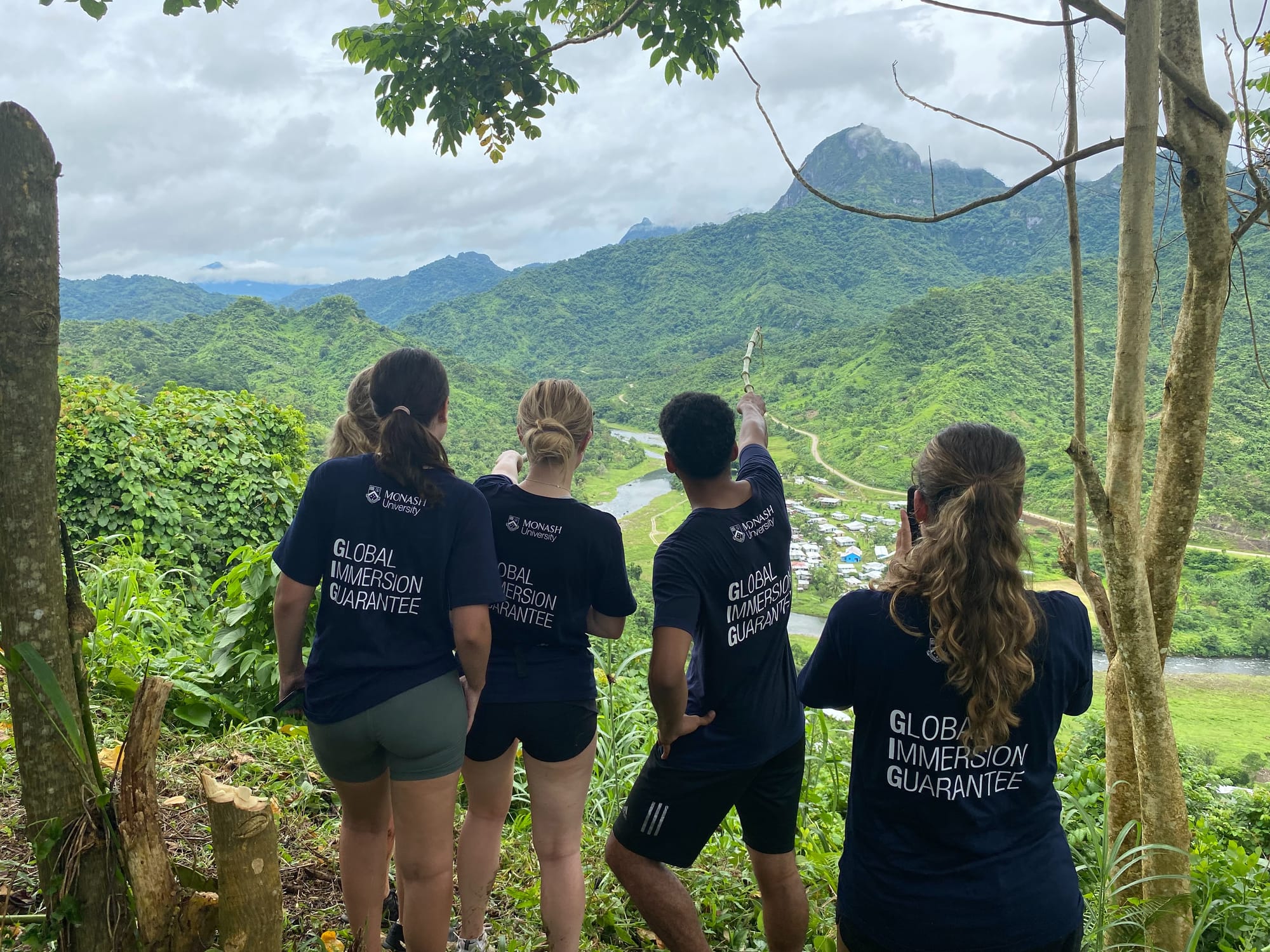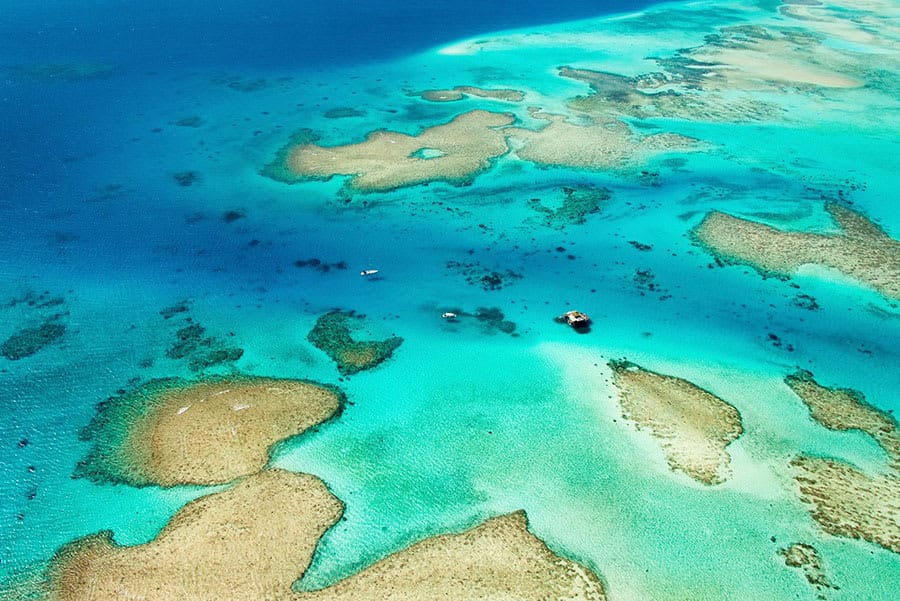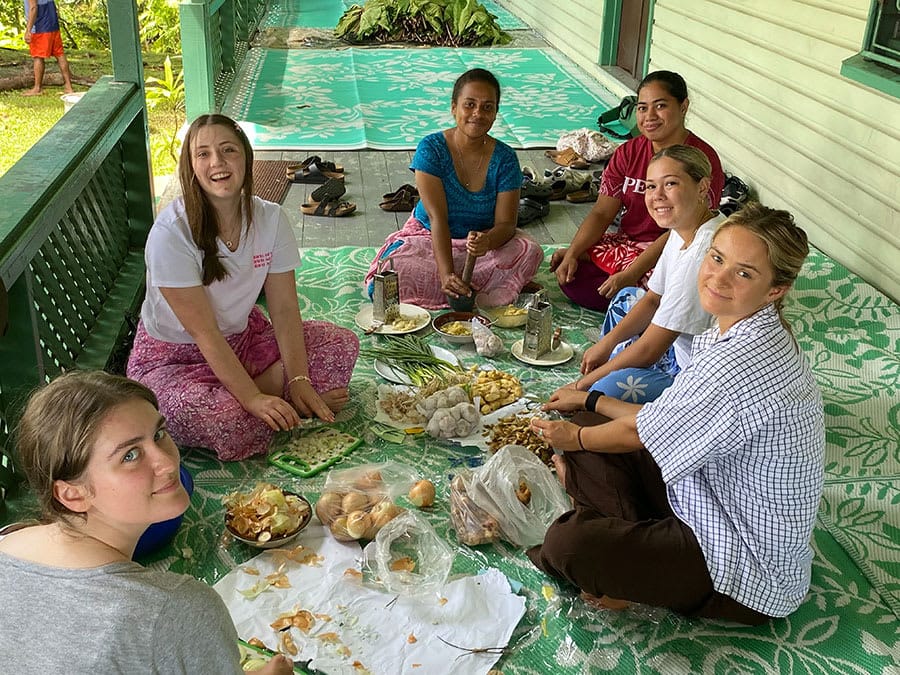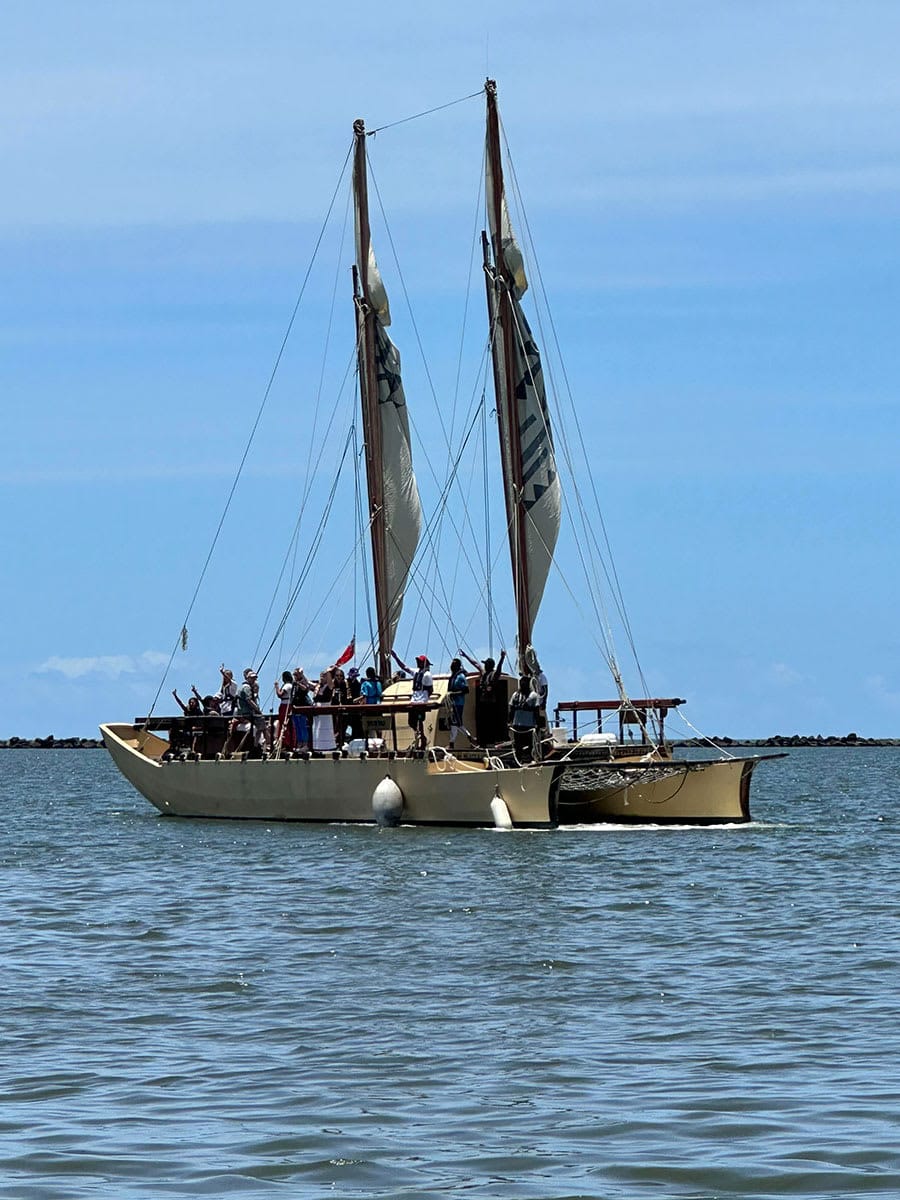
Humanity’s collective impact on the environment is leading to devastating and irreversible changes to our planet, with disproportionate effects on our Pacific neighbours.
Fiji, for example, is responsible for just 0.01% of global CO₂ emissions, but has already had to relocate six villages to higher land due to rising sea levels, and has 40 more slated for similar forced relocation.
There’s an urgent need for new pedagogical approaches that address climate change and encourage students to see and experience the impact humans are having on the environment.
The Monash University Global Immersion Guarantee (GIG) does this. It’s a transformative overseas study program that gives students at the end of their first year the opportunity to undertake fully-funded travel to one of nine locations, regardless of their means.
Recently, more than 150 first-year students, from diverse disciplines, travelled to Fiji for two weeks of deep cultural immersion and learning.
The result was a transformative educational experience. As one student observed:
“[This] exposure instilled in me a heightened sense of responsibility toward global issues impacting the Pacific Islands. It ignited in me a passion for proactive involvement in addressing these critical issues and I am looking forward to carrying these lessons with me into my future.”
While in Fiji, students undertook multiple field trips where they learned about innovative community-driven responses to the warming of the oceans, the rising sea levels, and the increasing number, and intensity, of cyclones that are battering Fiji.
Increasing the resilience of coral
While many tourists enjoy snorkelling around the 330 islands that comprise Fiji, the sustainability of these coral reefs is usually something only marine scientists study.
Monash GIG students, from disciplines as diverse as law, arts, IT, bio-med and engineering, were privileged to learn about the urgent work that Dr Victor Bonito, a coral reef scientist, and his local Fijian team, are doing to protect these reefs from the impacts of climate change.

Bonito is leading research that’s identifying which corals are the most resilient to rising sea temperatures.
Students snorkelled around nurseries where the most resilient corals are being nurtured to restore coral colonies and damaged marine ecosystems. Having the opportunity to see this groundbreaking work was an inspiring and transformative learning experience.
Visiting highland villages
Fijians are becoming more vulnerable to climate change, because of their high economic dependence on the climate sensitive sector of tourism. Approximately 40% of Fiji’s GDP comes from tourism, and more than 90% of the tourist attractions are maritime or coastal-based.
Fiji’s highland villages are leading the way in developing a more sustainable tourism future.
Students visited Waivaka and Namosi eco-retreat to experience real village life. They were welcomed to the village in a traditional sevusevu ceremony – akin to a Welcome to Country ceremony in Australia – where village elders gave their consent to Monash students coming onto their traditional lands to learn about their culture and traditional practices.
Students explored the village and surrounding forests (described by locals as their supermarket and pharmacy, since it’s from the forests that they source their food and medicines).
Students were served an authentic lunch prepared by the village women, after which they watched and participated in traditional singing and dancing. These self-sustaining eco-tourism initiatives had a profound impact on the students, with one noting that:
“I beheld some of the most unique and beautiful landscapes I had ever seen. There was this sort of silence that settled inside me, allowing me to focus on what really mattered. I realised that it is the friendships, the relationships and the connections we make along the way that keep us grounded, and motivate us to fight for a better world.”
Connecting through culture
Traditional food systems, sustainable production, and sharing practices are connected to the resilience of communities, especially in times of crisis.

Monash GIG students experienced these sustainable food practices first-hand when they participated in the preparation of a traditional Fijian meal.
Among the lush greenery of the University of the South Pacific (USP) campus, students learned how to prepare palusami (a dish made from coconut milk and taro leaves), kokoda (lime-cured fish prepared with coconut milk), smoked eggplant, and chicken cooked in a lovo (earth oven). Students also learned weaving and enjoyed a kava ceremony and talanoa (storytelling) with their USP counterparts.
This cultural experience was a reminder of the need to work together to tackle the many challenges associated with the climate crisis.
Traditional sailing and navigation
Students also learned about how early Fijian sailors navigated the Pacific in double-hulled sailing boats called druas. The work of the non-profit organisation Uto ni Yalo Trust, a youth initiative, has seen a resurgence in the use of these traditional sustainable sailing boats.
Several island villages have been provided with a drua, which unlike motor boats, are free to run.

This youth initiative brings back traditional ingenuity to local villages. Drawing on their Fijian ancestors’ reciprocal relationship with nature, the youth of today are responding to climate change through resurrecting traditional voyaging practices.
Monash GIG Students not only got to experience sailing on a drua, but also learned first-hand from the captain about navigating without instruments by reading the tides, clouds, and behaviours of fish and birds.
Evolutionary biologist Stephen Jay Gould says that:
“We cannot win this battle to save species and environments without forging an emotional bond between ourselves and nature – for we will not fight to save what we do not love.”
Monash GIG students fell in love with the languages, culture, people and natural beauty of Fiji.
They now have the Pacific “under their skin”, and have the knowledge and passion to act for positive and sustainable change.
As one student reflected, Monash GIG showed them that: “We all have our part to play, and can influence changes that, in the end, come together to have a big impact.”
GIG is a funded 12-credit point fieldwork unit (MON2100) that takes you to one of eight countries at the end of your first year. Take this unique opportunity to put your degree into practice and respond to some of the world’s biggest challenges. You'll gain a deeper understanding of the complexities and challenges involved in implementing sustainable and innovative solutions – skills that employers hold in high esteem.





